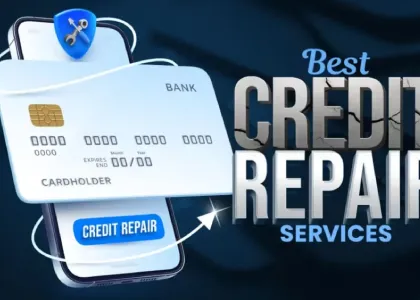
How a Thorough Credit Score Analysis Can Unlock Better Loan Rates

Understanding Credit Score Analysis
A credit score analysis is like looking under the hood of your financial health. It’s not just a number but a snapshot of your credit habits. By digging into this report, you uncover what lenders see—how often you pay on time, how much debt you have, and the types of credit you use. Good scores often lead to better loan rates because they tell lenders you’re a safe bet. To boost your score, focus on paying bills on time, keeping balances low, and not opening too many new accounts at once. Remember, checking your own credit doesn’t hurt your score, so review it regularly to stay on top of your financial game.
The Importance of Your Credit Score in Loan Applications
Your credit score is like a financial passport. The higher it is, the more doors it opens for better loan rates. Lenders use this number to decide if they want to lend you money and at what interest rate. Think of it as a report card that shows how well you manage your money. A good score means you’re less of a risk, so lenders are more willing to give you lower rates. This could save you a lot of cash in the long run, especially on big loans like mortgages. If your credit score is not where you want it to be, don’t worry. Simple steps like paying bills on time, keeping credit card balances low, and not opening new accounts too often can help improve it. Remember, a better credit score is your ticket to saving money and achieving your financial goals.
What Factors Influence Your Credit Score?
Your credit score is a big deal. It’s like the grade you get in school that tells banks and lenders how good you are at managing money. The better your score, the better loan rates you can unlock. So, what makes up this score? Firstly, your payment history is crucial. It’s about whether you pay bills on time. Missed payments are red flags. Secondly, how much debt you have matters. If your credit cards are maxed out, it looks bad. Thirdly, the length of your credit history is important. A longer history of good credit use is better. Also, the mix of credit counts. It’s good to have a mix of installment loans and revolving credit like credit cards. Lastly, new credit plays a role. Opening many new accounts in a short time can look risky. Keep these factors in mind to improve your credit score and unlock better loan rates.
How to Perform a Thorough Credit Score Analysis
First, get your credit score. You can find this out for free once a year from each of the three major credit bureaus: Experian, TransUnion, and Equifax. Now, don’t just glance at the number. Dive deeper. Look at the factors pulling your score up or down. These usually include your payment history, how much debt you’re carrying, and the length of your credit history. Pay special attention to any mistakes. Yes, errors happen more often than you’d think. If you spot any, challenge them. This can bump up your score.
Next step, scrutinize your credit utilization ratio — that’s how much credit you’re using versus how much you have available. Experts say keep it under 30%. Under 10%? Even better. This shows lenders you’re not desperate for credit, making you less of a risk.
Here’s where it gets actionable: Start improving your score. Always pay bills on time. If you’ve missed payments, get current and stay that way. Work on paying down debts, especially those high interest credit cards. If your credit history is thin, consider getting a secured credit card or becoming an authorized user on someone else’s.
Remember, a thorough credit score analysis isn’t a one-and-done deal. Make it a habit. Monitor your credit regularly to catch any dips early and keep pushing for a higher score. The better your score, the lower the interest rates on loans you can unlock.
Identifying Issues and Errors in Your Credit Report
Spotting mistakes on your credit report is crucial. These errors can drag your score down, making loans more expensive or even out of reach. Start by getting a free report from each of the three major credit bureaus: Equifax, Experian, and TransUnion. Look for any mistakes like wrong addresses, incorrect loan amounts, or accounts you don’t recognize. Dispute these errors directly with the credit bureau; they’re required to investigate. Remember, removing these mistakes can give your score a significant boost, leading to better loan rates. It’s a no-brainer step toward healthier finances.
Strategies to Improve Your Credit Score
Boosting your credit score isn’t rocket science. It’s about sticking to a game plan. Start off by always paying your bills on time; payment history is key. Then, keep your credit card balances low and don’t max out your cards. Using less than 30% of your credit limit is golden. Also, don’t open too many new accounts quickly; this can scare lenders. It makes you look desperate for credit. Periodically, check your credit report for errors. Mistakes happen, and you can fix them for free. Handling old debts? Get them paid off rather than moving them around. Lastly, if you have a thin credit file, consider a secured credit card or becoming an authorized user on someone else’s account. These moves aren’t overnight miracles but stick with the plan, and you’ll see your score climb. This doesn’t just open doors to better loan rates; it’s a key to financial freedom.
Timing Your Loan Application After Credit Score Improvement
Timing your loan application just right after a credit score improvement can be a game-changer in securing better loan rates. When your credit score goes up, it signals to lenders that you’re a lower-risk borrower. This means they might offer you loans with lower interest rates. It’s like scoring a deal on a big purchase, but with your loan. Aim to apply for loans after your credit report has updated to reflect your improved score, usually taking about a month or two. This window is crucial because it’s your golden opportunity to lock in better rates. Keep a close watch on your credit score, and when you see a significant improvement, that’s your cue to make a move. Lenders will see you in a new light, potentially saving you a ton of money in the long run. Remember, patience pays off. Wait for that score to bump up, then apply. It’s all about timing.
How Better Credit Scores Lead to Better Loan Rates
Banks love numbers. Especially your credit score. It’s like a secret code that tells them if you’re good with money. A high credit score? You’re in the money-saving club. It means you’re less of a risk, so banks give you better loan rates. Think of it as a reward for being financially responsible. Low interest rates on loans can save you a ton of cash over time. It’s simple – the better your credit score, the better your loan rates. Keep your score high, and your wallet will thank you.
Working With Financial Advisors for Optimal Results
When it comes to improving your credit score, joining forces with a financial advisor can lead to better outcomes. Think of them as your personal guide through the credit jungle. They’ve got the map and know the shortcuts. A financial advisor can help you understand the ins and outs of your credit report, pinpointing areas that need work and crafting a strategy tailored to boost your score. They’ll also give you the lowdown on how different moves, like paying off debt or opening a new account, could impact your score. This isn’t just about making smart moves today; it’s about setting up a solid financial foundation for your future. Plus, with a stronger credit score, you’re in a better position to negotiate lower loan rates, saving you money in the long run. So, while it may feel like an extra step, working with a financial advisor could be the key to unlocking those better rates. They’re your ally in this journey, ensuring you’re not only making progress but doing so in the most effective way possible.
Summary: Unlocking the Power of Your Credit Score
Understanding your credit score is like unlocking a secret level in a game that leads you to better loan rates. Think of your credit score as a snapshot of your financial health. Lenders look at this score to decide whether to give you a loan and at what interest rate. The higher your score, the better the rates you’re likely to get.
First off, a good credit score can save you loads of money in interest over the life of your loan. It’s that simple. A high score could mean paying less each month on your mortgage, car loan, or credit cards. On the other hand, a lower score? You guessed it – you’ll be shelling out more.
Here’s the deal: Scores range from 300 to 850. A score above 670 is generally considered good. If you’re not there yet, don’t sweat it. You can work to improve your score by paying bills on time, keeping your credit card balances low, and avoiding new debt.
By understanding and improving your score, you unlock the power to get better loan rates. It’s like having a VIP pass in the financial world – lower interest rates, better deals, and a smoother path to paying off debt. It pays to keep your score in check and understand its impact. Remember, a better score means better financial opportunities. It’s that crucial.



